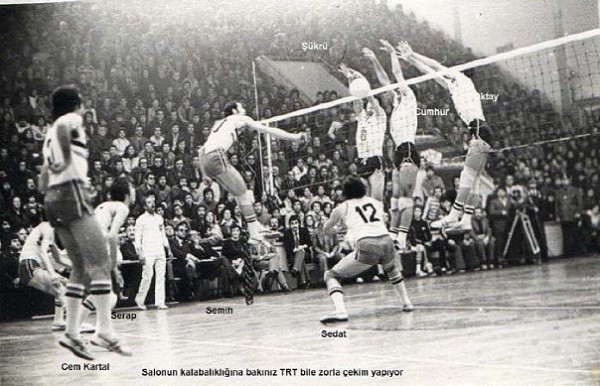History and Origins of Volleyball
History and Origins of Volleyball
Volleyball was invented in 1895 by William G. Morgan, a physical education instructor in the United States, as an indoor alternative to basketball. Originally called "mintonette," the sport quickly gained popularity and underwent various rule changes and refinements over the years. Today, volleyball is played at both recreational and competitive levels, with international governing bodies overseeing its development and regulation.
Evolution and Globalization of Volleyball
Volleyball's popularity spread rapidly beyond the United States, fueled by international competitions and the establishment of volleyball federations worldwide. The FIVB (International Volleyball Federation) was founded in 1947 to oversee the sport's global governance and organize international tournaments. As a result, volleyball has become a truly global sport, with participation from countries across Europe, Asia, the Americas, and beyond.
Major Volleyball Tournaments and Leagues
The Olympic Games feature volleyball as one of its premier events, with indoor and beach volleyball competitions drawing millions of viewers worldwide. Additionally, the FIVB Volleyball World Championships, World Cup, and World Grand Prix showcase the best national teams from around the globe. At the club level, leagues such as the Italian Serie A, Brazilian Superliga, and Russian Super League attract top talent and competitive play.
Societal and Cultural Impact of Volleyball
Volleyball has a significant societal and cultural impact, particularly in promoting teamwork, communication, and physical fitness. The sport is played in schools, universities, and community centers worldwide, fostering social interaction and camaraderie among participants. Additionally, volleyball's emphasis on inclusivity and gender equality has contributed to its widespread popularity and acceptance across diverse communities.
Economic Implications of Volleyball
Volleyball generates revenue through various channels, including ticket sales, sponsorship deals, broadcast rights, and merchandise sales. Major international tournaments and leagues contribute to the sport's economic growth, attracting investments from corporate sponsors and media partners. Additionally, volleyball-related businesses such as equipment manufacturers, apparel companies, and sports facilities support the sport's infrastructure and development.
Star Players and Teams in Volleyball
Volleyball has produced numerous legendary players and iconic teams that have left a lasting impact on the sport. Players like Karch Kiraly, Giba, Misty May-Treanor, and Zhu Ting are celebrated for their exceptional skill and achievements on the court. Teams such as Brazil's men's and women's national teams, Italy's clubs like Trentino Volley and Perugia, and Russia's powerhouse clubs like Zenit Kazan are renowned for their dominance in the sport.
Future Perspectives and Challenges
As volleyball continues to evolve, it faces challenges such as increasing competition from other sports, ensuring athlete welfare, and expanding its reach in emerging markets. Embracing technological advancements, promoting grassroots development, and enhancing fan engagement are critical for the sport's future growth and sustainability. Additionally, addressing issues related to governance, doping, and integrity will be essential in maintaining volleyball's integrity and credibility.
Conclusion
Volleyball's journey from its humble origins to its status as a global sport is a testament to its enduring appeal and universal popularity. As volleyball continues to evolve and thrive, it will remain a source of inspiration, entertainment, and community for millions of players and fans around the world. Whether played on sandy beaches, indoor courts, or grass fields, volleyball will continue to unite people of all ages, backgrounds, and cultures in the spirit of competition, camaraderie, and joy.
References
- "Volleyball". International Olympic Committee. Archived from the original on March 23, 2018. Retrieved March 21, 2007.
- a b "Official Volleyball Rules, 2017–2020" (PDF). 35th FIVB World Congress, Buenos Aires, Argentina, 2016. Archived (PDF) from the original on February 5, 2017. Retrieved January 11, 2019.
- a b c d e f g h i j k l m n o p q r s t u v w Joel., Dearing (2003). Volleyball fundamentals. Champaign, IL: Human Kinetics. ISBN 0736045082. OCLC 50643900.
- ^ Originally, only the upper body was allowed to touch the body and kicking the ball was penalised ("Can You Use Your Feet in Volleyball?: (What's the Rules)". volleyballvault.com. October 4, 2023. Archived from the original on December 7, 2023. Retrieved December 7, 2023.) In 1993 (FIVB) and 1999 (NCAA, respectively, the rules were amended to allow for touching the ball with any part of the body. ("Are You Allowed To Use Your Feet In Volleyball". volleyballedge.com. May 5, 2022. Archived from the original on December 7, 2023. Retrieved December 7, 2023.), ("Is using your feet legal in volleyball?". sportsmanist.com. Archived from the original on December 7, 2023. Retrieved December 7, 2023.)
- ^ "History of Volleyball – NCVA". ncva.com. Archived from the original on April 7, 2019. Retrieved April 29, 2021.
- ^ "The International Association Training School Notes (vol. 4 no. 8), October, 1895". Archived from the original on June 2, 2019. Retrieved May 31, 2018.
- ^ "In 1895, William Morgan Invents Mintonette". New England Historical Society. January 30, 2016. Archived from the original on September 29, 2018. Retrieved October 25, 2021. Putting his mind to the challenge, Morgan examined the rules of sports such as baseball, basketball, handball and badminton. Taking pieces from each, he created a game he called Mintonette. He took the name from badminton
- ^ "Bet You Don't Know Where Volleyball Came From". ThoughtCo. Archived from the original on June 2, 2019. Retrieved August 4, 2018.
- a b "The Volleyball Story". Fédération Internationale de Volleyball (FIVB). Archived from the original on January 27, 2007. Retrieved September 21, 2007.






































